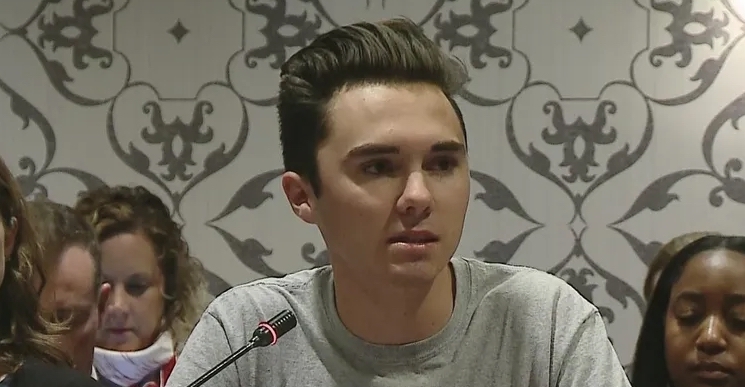The North Carolina Senate passed a bill unanimously on Monday, May 1. That legislation, Senate Bill 579, would increase the penalty for violating state law on “Obscene literature and demonstrations” if the violation were “committed knowingly in the presence of an individual under 18 years of age is a Class H felony.” The maximum punishment of a Class H felony in North Carolina is 39 months. Otherwise the violation would be a Class I felony (maximum punishment of 24 months).
A press release on SB 579 pointed out that “The bill does not change the definition of obscenity under North Carolina law which has been in place since 1974.” It also noted that, “Approval of Senate Bill 579 comes after it was reported that there is a criminal investigation into the disturbing incident that took place on the campus of Forsyth Technical Community College in March. The incident involved a drag performer straddling a minor.”
WRAL’s focus of reporting on SB 579 is that it “could apply to some drag shows.” It could, in fact. It could presumably affect some cooking demonstrations or puppet shows, too, should they venture into obscenity before children. The higher felony would be for disseminating or performing obscene material deliberately before children without regard to the chosen method of dissemination or performance.
Media have also been pushing a sensationalized version of another bill, House Bill 673, intended to protect minors from obscene content. Casual consumers of political journalism in North Carolina find themselves badgered into thinking the bill “bans drag shows.” It would do no such thing.
Here is the relevant text of the bill as filed:
SECTION 1. Article 26 of Chapter 14 of the General Statutes is amended by adding a new section to read:
Ҥ 14-190.15A. Restrictions on adult live entertainment.
(a) Definition. – For purposes of this section, the term “adult live entertainment” means a performance featuring topless dancers, exotic dancers, strippers, or male or female impersonators who provide entertainment that appeals to a prurient interest, regardless of whether or not performed for consideration.
(b) Offense. – It is unlawful for a person to engage in adult live entertainment (i) on public property or (ii) in a location where the adult live entertainment is in the presence of an individual under the age of 18.
(c) Punishment. – A person who violates subsection (b) of this section is guilty of a Class A1 misdemeanor for the first offense. A person who violates subsection (b) of this section is guilty of a Class I felony for a second or subsequent offense.”
Here’s what the bill would ban: topless dancing, exotic dancing, strippers, or male or female impersonations done to appeal to a “prurient interest” that are done on public property or in the presence of a minor. Outside of those specific circumstances, the bill would not otherwise outlaw topless dancing, exotic dancing, strippers, or lewd male or female impersonations (drag shows).
The phrase “prurient interest” hearkens to the U.S. Supreme Court’s clarification of obscene material. As explained in the U.S. Congress’s Constitution Annotated, “The Court defined material appealing to prurient interest as material having a tendency to excite lustful thoughts, and defined prurient interest as a shameful or morbid interest in nudity, sex, or excretion.”
Making it explicitly illegal to provide adult content to minors would not, of course, ban the content itself. The issue would hinge on whether those behaviors take place either in public or in the presence of a child. That’s it.
Here is where the bill would situate this new law within North Carolina General Statutes. Article 26 of Chapter 14 specifically concerns “Offenses Against Public Morality and Decency.” It would be designated § 14-190.15A, which means it would be placed between § 14-190.15 and § 14-190.16. The former outlaws disseminating harmful material to minors as well as exhibiting harmful performances to minors, while the latter outlaws sexual exploitation of a minor, including in live or video performances. A law protecting minors from topless dancing, exotic dancing, strippers, or lewd male or female impersonations would be a logical fit there.
Media interest in this bill appears to have centered entirely on its prohibition of lewd drag shows in public or in front of minors. I’m unaware of any news report that the General Assembly is considering “banning” stripping or topless dancing. (I am aware of the irony that these same media vociferously supported Gov. Roy Cooper closing bars, rock concerts, movie theaters, even bowling alleys like a puritanical villain in a bad 1980s teen flick.)
WRAL, for example, covered the bill under the headline “NC Republicans propose banning drag shows, with felony charges.” Saying HB 673 “bans drag shows” is like saying the State of North Carolina “bans alcohol sales” by dint of the law banning sales of alcoholic beverages to minors. Making it explicitly illegal to provide adult content to minors does not, of course, ban the content itself. This fact is true even if some providers have created a business model out of providing illegal content to minors — and even if media, for whatever reason, harbor sympathies for those with such a business model.


